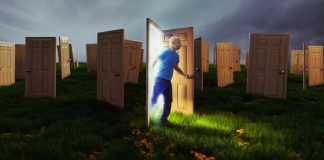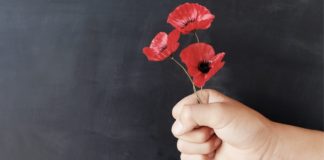Is capitalism compatible with the Bible?
Many will admit that they have never thought about this question because they live the status quo without critically evaluating it.
Mountains climbed with baby steps
Whether we see ourselves or not as living collections of our habits, we know from experience that, once formed, our habits are not as malleable as we would like them to be.
Staring loss in the eye | Lessons from life’s disasters
In the aftermath of Hurricane Harvey, Max Lucado wrote an article summarising the spiritual lessons we can learn from an event that the news described as a "once in a thousand year flood".
Some still believe in education
Is it worth fighting for a better world? Is it worth believing that, in a world relentlessly subject to the laws of entropy, hope, good thinking, beauty will still have the chance to develop and enrich our life horizon through education? Can tomorrow's world be better than today's, when everything we hear seems to be so catastrophic, and everything we do seems to...
Are you being watched?
On 17 March 2018, the world felt naked thanks to social media giant Facebook. It was confirmed that 87 million users’ personal information had been shared through an app developed by British consulting firm Cambridge Analytica.
At a crossroads: the Christian and their choices
“And taking your life as a whole, with all your innumerable choices, you are slowly turning this control thing either into a heavenly creature or into a hellish one,” wrote C.S. Lewis—simply through the decisions you make. If the choices we face truly carry such eternal weight, how can a Christian ensure they are making the right ones?
COVID-19: What people on the front line think and feel
While most of us have been staying inside for several weeks, many leave the safety of their homes every day to help us live our lives as normally as possible.
The story of blessed Ayyub
During the time when the people of Israel were enslaved in Ta Kemet (the Black Land), and Prince Moses, the great scribe, had taken refuge among the northern Arabian tribe of Midian, a captivating story shared by the campfire caught his attention. It was the tale of another prince who, like him, had suddenly lost everything.
The role of Christian marriage counselling
Isaac and Rebecca, two biblical characters, had problems in their marriage. At first they struggled to fall pregnant. Then, when she eventually got pregnant, it was a difficult pregnancy, which affected them very much—so much so that they didn't know what to do. I suppose they had all sorts of discussions about the situation, but at some point the discomfort just became too...
COVID-19: Lessons on happiness from an invisible teacher
When life takes a bad turn, we are often tempted to console ourselves with nostalgia. We begin to look at the past in a different light. We realise that we had been too demanding of ourselves, of others, of the world. That even though we had everything we needed we still wanted more. That we were always looking for something else, without paying...
Antonyms will not exist forever
God is never the one to leave. He is the one who is abandoned. Even when Scripture describes Him as turning His face away, we understand that this is in fact the reluctant and painful recognition of man's decision to go beyond the point of no return in his relationship with God.
In the arms of the coach
What can you do in the face of a terrible diagnosis, which condemns you to life in a wheelchair? What can you choose besides despair or resignation? Kayla chose to run.
31 days of Christmas
I love Christmas, and opening Nathan Brown’s book, Advent: Hearing the Good News in the Story of Jesus’ Birth, reading each page, is like opening a carefully wrapped Christmas present, undoing the gift card attached with ribbon and bow, folding back the bright cellophane wrapping and lifting the lid off a curious little box containing the Gift itself. The gift in this case...
What we can learn from our children
The relationship between a parent and their child is one of the most significant in their lives, with its primary role being education.
The war with Bacchus
On 17 January 1920, America officially "dried up". It wasn't a shortage of water or a prolonged drought, but a law banning the sale, transport, and commercial production of alcohol.


























